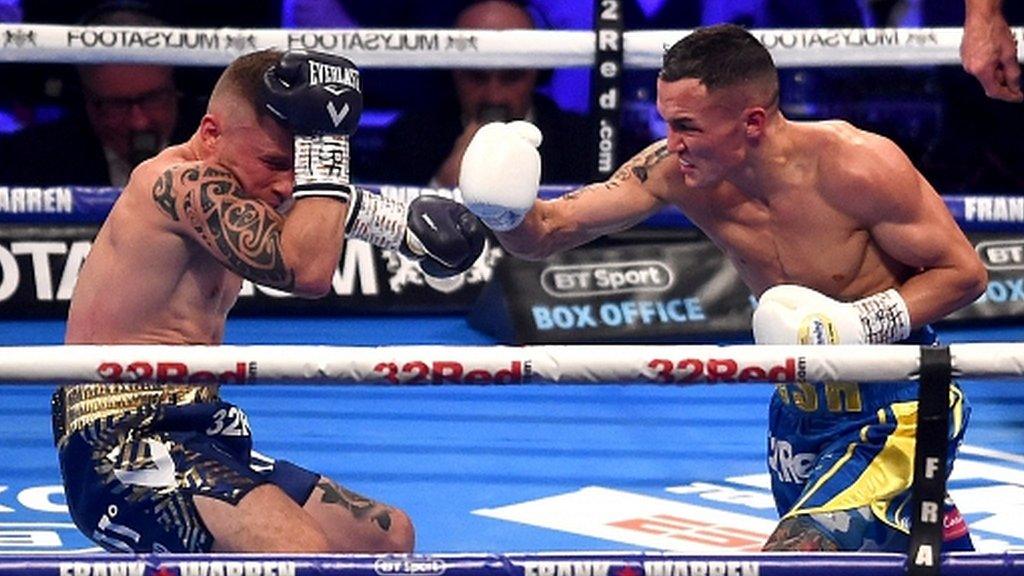First female British Muslim kickboxing champion inspires a new generation
- Published
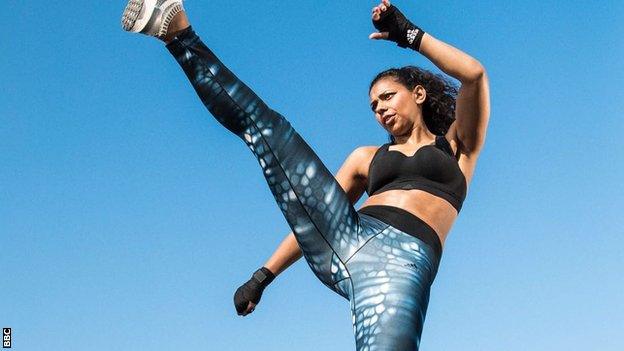
Ruqsana Begum wants to inspire a new generation of young British Muslim women fighters
A British Bangladeshi woman who tackled a strict religious upbringing, escaped a disastrous arranged marriage, and was then diagnosed with a debilitating health condition - all before becoming a kickboxing world champion.
This is not script from a Hollywood movie, it is the real-life story of Londoner Ruqsana Begum.
Despite standing just 5ft 2in, Begum has punched, elbowed and kicked down cultural barriers and personal adversity to reach the pinnacle of her sport - and is not finished yet.
"I had a very a strict Muslim upbringing," she said. "My family were very protective of me. So I felt like I couldn't tell them I was training in combat sports, because I thought they wouldn't allow me to. I was worried I would have to choose either the sport I fell in love with or my family."
Fifteen years ago, while studying architecture at Westminster University, Begum found a way to express herself - with Thai boxing, a form of kickboxing.
By the time she was 19, she had won her first competitive event. But, despite her passion for the sport growing, she kept it secret from her family for five years.
She said: "When I was younger I used to get up extra early on a Sunday morning, make sure all the house chores were done, keep my mum super happy and then ask her, really politely: 'Mum can I go to the gym for an hour?'
"Then I'd rush to the gym, get my training in Muay Thai done and run back home. My family didn't know what I was doing there.
"I just fell in love with the sport, I had such a confined upbringing that I finally found an outlet to express myself, but I was definitely leading a double life.
"When I started competing, I wanted my family's blessing. I didn't want to go behind their back any more. I wanted my mum's prayers"
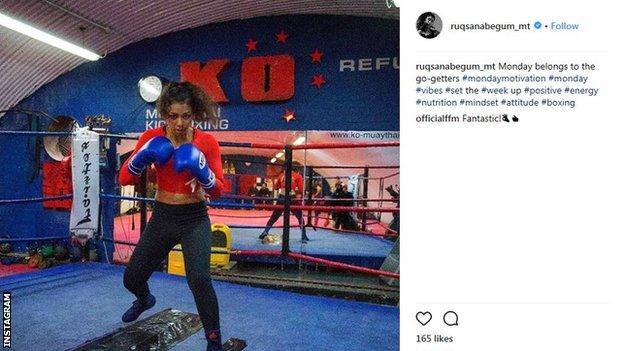
Ruqsana Begum trained while studying at university
But the journey to acceptance was to be far more difficult then she imagined. For many British Asian women the early twenties spawn marriage pressure, and her situation was no different.
"Once I finished university I had an arranged marriage which failed miserably," she said. "That led me to a low patch in my life and at that point I felt like I lost my identity."
Her fighting career suffered a further setback in 2010 when she was diagnosed with ME (Myalgic Encephalomyelitis), an illness she says she has been able to manage with a strict diet and training regime.
"My coach told me to see a specialist when we realised after one good training session I'd be in bed for a month," she said. "I knew I was not a lazy person, so something had to be wrong."
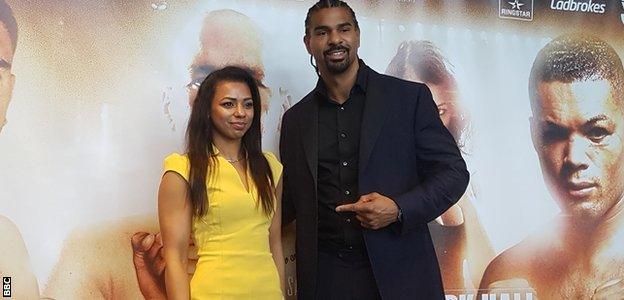
Ruqsana Begum will make her boxing debut after signing with David Haye's Hayemaker Promotions
Barriers that my have stopped many in their tracks were smashed to pieces by the determined fighter who dreamed of world honours.
"After my arranged marriage ended, I decided to take my parents to the gym without telling them where I was taking them," she said.
"Once they saw what I was doing at the gym, they took a step back and gave me their silent consent. They just wanted their daughter back. They felt guilty about what happened to me in my marriage. From there, I continued my journey as a Muay Thai kickboxer."
Not only did she continue, in 2016 she made history, defeating Sweden's Susanna Salmijarvi to become the first British Muslim woman to win a kickboxing world title.
Now aged 34, she has overcome every challenge she has faced. But instead of being content with that, she has decided to make the switch to professional boxing.
After signing with former heavyweight champion David Haye's Hayemaker Promotions, Begum makes her professional debut on Saturday, in a fight to be screened on Channel 5.
The profile of women's professional boxing has risen lately, with stars such as Olympic gold medallist Nicola Adams and Ireland's Katie Taylor.
Begum says she wants to be a part of it so she can continue to inspire a new generation of young British Muslim women fighters.
"I didn't have any doors open to me, it was a hard, long struggle over 10-15 years to receive approval from my parents, my community, my coaches," she said.
"As a female, being able to do something and give others hope that nothing is set in stone and you can get through anything."
- Published11 March 2018
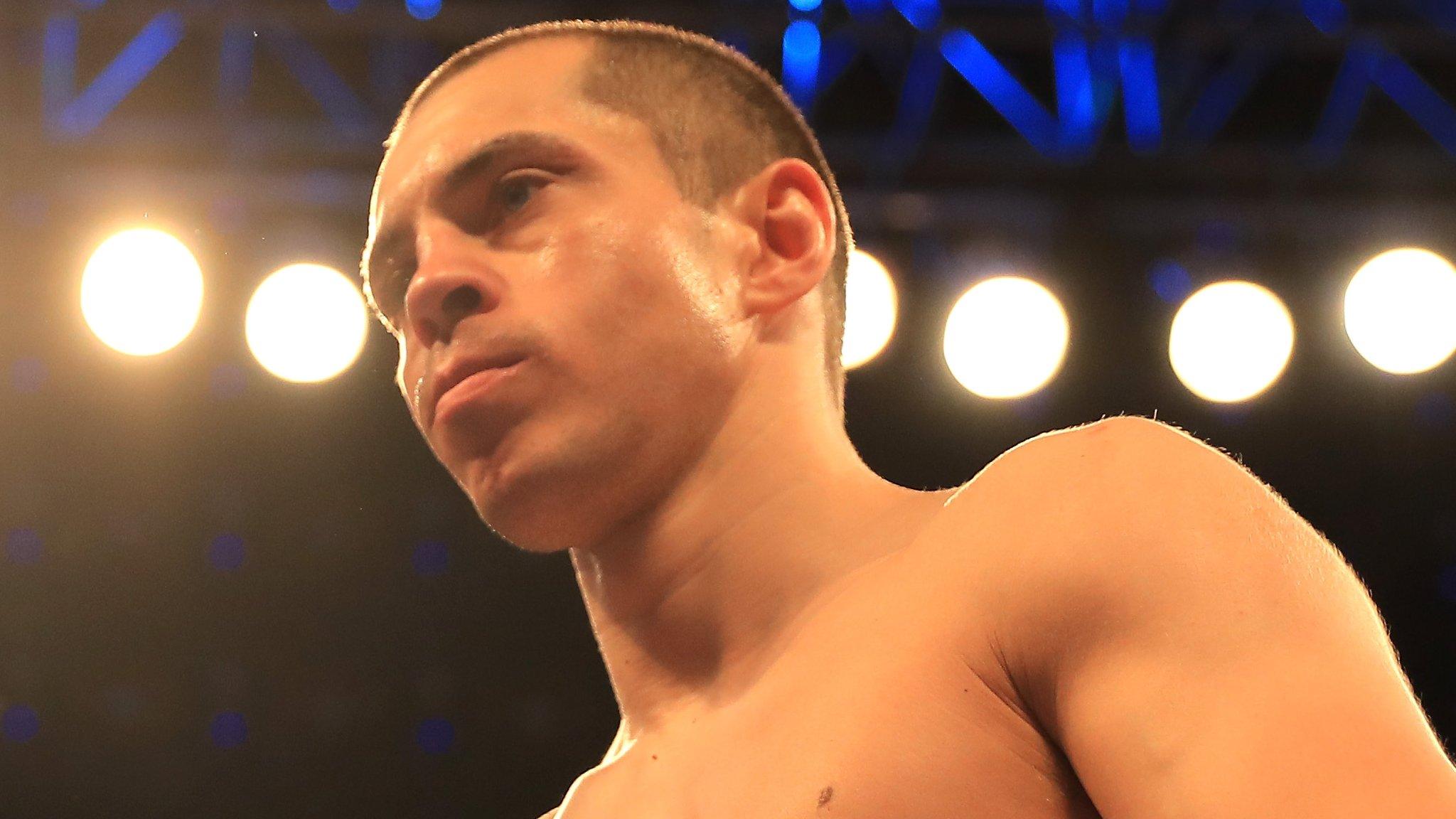
- Published11 March 2018
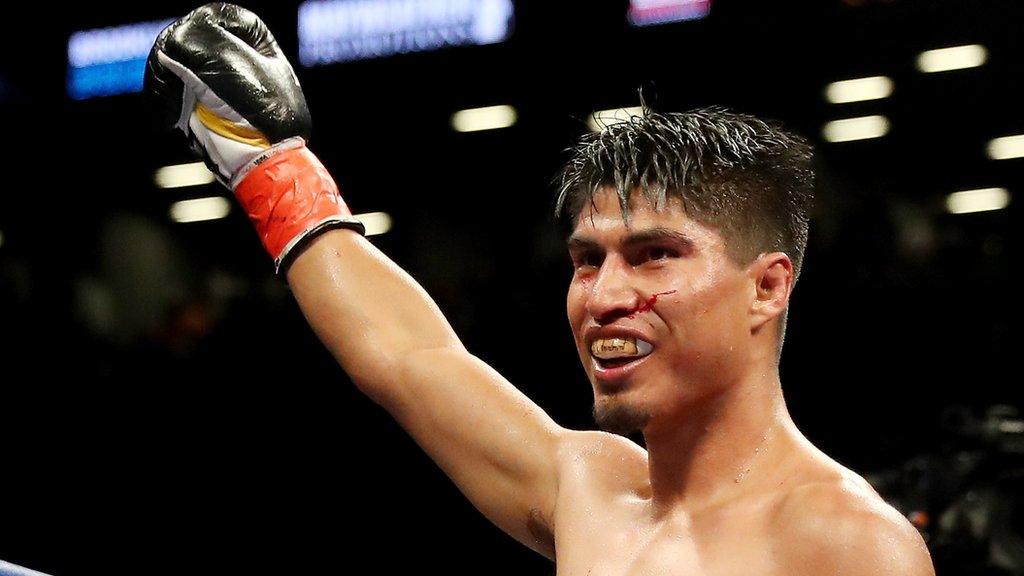
- Published22 December 2018
